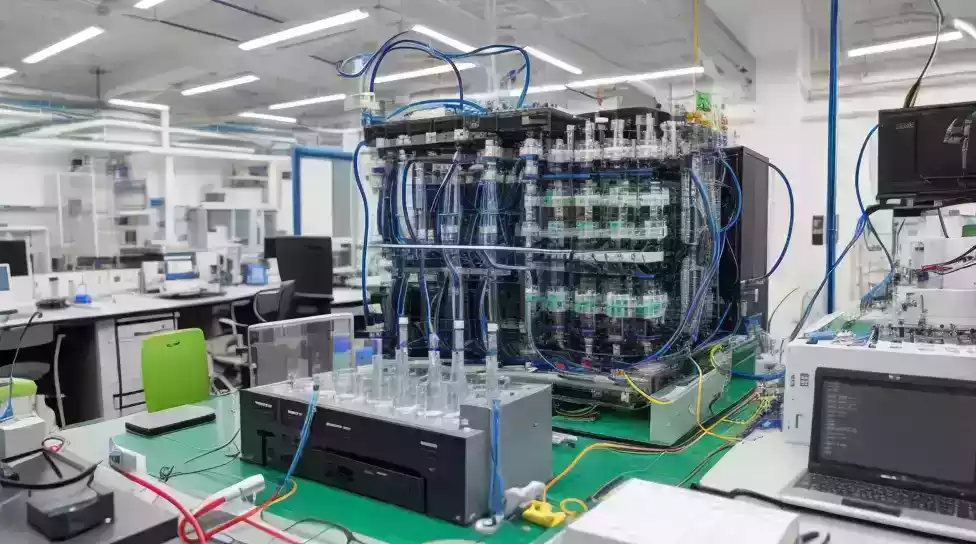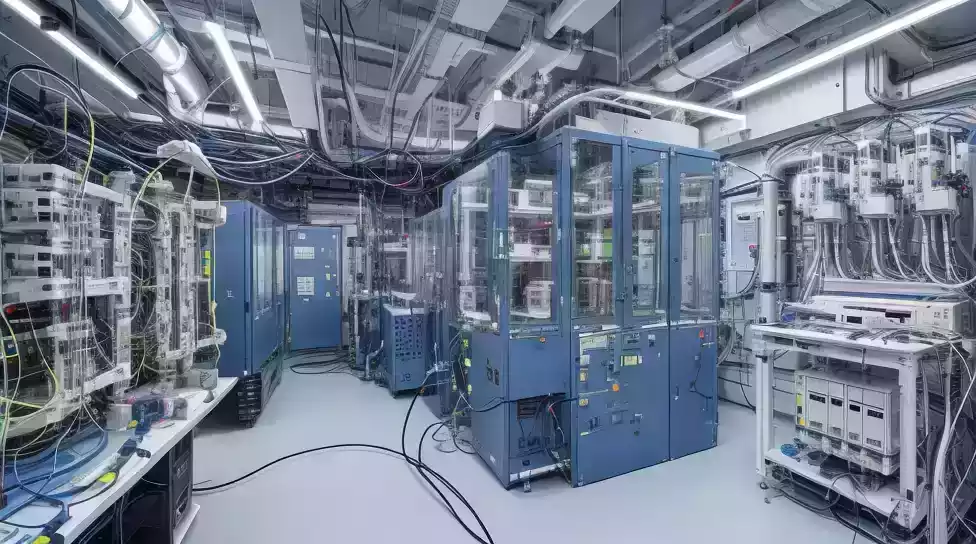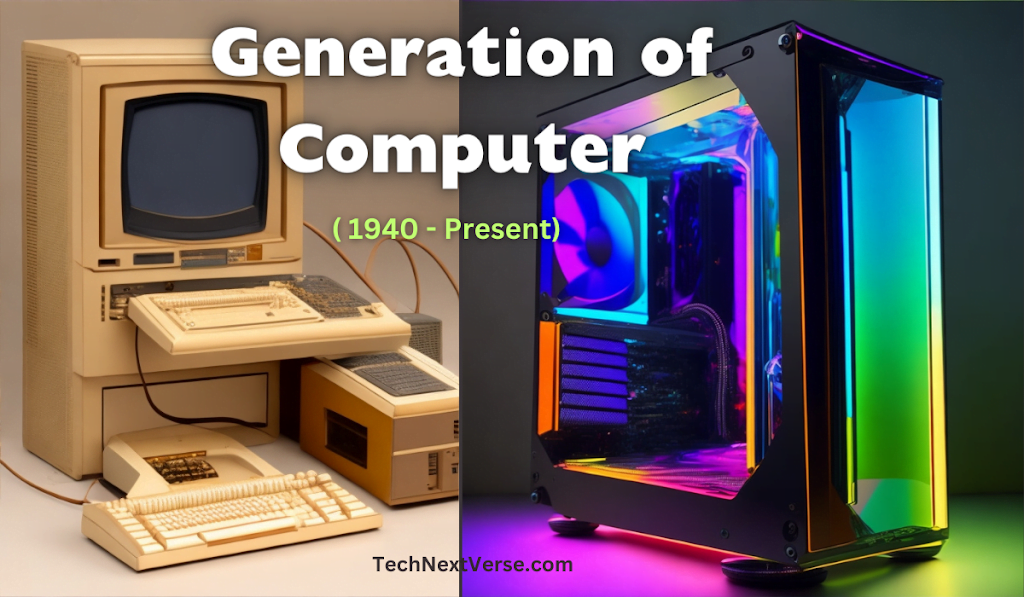
Applied Quantum computing is transitioning from research labs into real-world application. While widespread practical quantum computers may still be years away, today’s quantum processors can already solve certain problems intractable for even the most powerful classical supercomputers. Quantum computing is moving from pure science into a revolutionary general-purpose technology. But “what is meant by applied quantum computing ? ” In this article, we will delve into the fascinating world of applied quantum computing, exploring its principles, applications, and the profound impact it has on various industries and society as a whole.
Introduction
Imagine having a calculator that could analyze a million possibilities instantly to find the single best solution. That’s the magic quantum computers can perform. Quantum computing leverages the strange physics of subatomic particles to process information in ways far beyond classical computers. This exotic processing power is now moving from theory into practical use.
Understanding Quantum Computing
Classical computers store information as binary bits – either 1 or 0. Quantum computers use quantum bits or “qubits” based on particles like electrons or photons. Due to the quantum physics phenomenon of superposition, qubits can represent 1 and 0 simultaneously. By linking qubits, quantum computers can analyze a massive number of potential solutions in parallel to quickly solve problems too complex for classical machines.

The Emergence of Applied Quantum Computing
While quantum computing concepts have been around since the 1980s, it is only in recent years that the potential of applied quantum computing has started to emerge. Researchers and engineers have made remarkable progress in harnessing the power of qubits to solve real-world problems more efficiently than classical computers.
What is Applied Quantum Computing ?
Today’s quantum processors with just 50-100 qubits are performing practical tasks like modeling chemical reactions. This could lead to faster drug discovery and materials design. Quantum machine learning can spot subtle patterns in data to improve decision-making for health care, finance and more. Powerful quantum simulations may someday design novel proteins or perfectly optimize huge systems like power grids.
How Applied Quantum Computing Differs ?
Applied quantum computing differs from traditional quantum computing in its
focus on practical applications. Rather than exploring theoretical possibilities, applied quantum computing aims to develop tangible solutions for real-world challenges. This shift in focus has brought quantum computing from the realm of theory into the realm of practicality.
Some Applications of Applied Quantum Computing

1. Quantum Cryptography
Quantum computing holds immense promise in the field of cryptography, offering significant potential for advancements and breakthroughs. Quantum cryptography offers unparalleled security by utilizing the principles of quantum mechanics to protect sensitive information. Quantum key distribution(QKD) enables secure communication channels, making it virtually impossible for hackers to intercept or decipher encrypted data.
2. Machine Learning and Artificial Intelligence
Quantum machine learning can detect subtle patterns in massive, noisy datasets too complex for classical techniques. This could significantly improve fields like medical diagnosis, financial fraud detection and climate modeling.
Quantum algorithms like quantum linear systems can quickly analyze enormous datasets that are too large for classical computers. This can significantly accelerate training machine learning models on big data.
Quantum machine learning can take advantage of vastly higher dimensional data representations. This allows recognizing subtle patterns that are invisible to classical ML techniques.
3. Optimization and Logistics
Optimization problems, such as route planning, resource allocation, and supply chain management, can be incredibly complex. Quantum computing algorithms can optimize these processes by considering multiple variables simultaneously. This has implications for industries such as logistics, transportation, and manufacturing, where efficiency gains can lead to significant cost savings.
4. Quantum chemistry
Quantum computers excel at modeling chemical reactions. Chemists can use quantum computing to design new catalysts, understand reaction mechanisms and discover products with desired properties.
5. Climate modeling
Highly complex quantum simulations of the climate could provide deeper insights into climate change. This can aid the development of mitigation strategies.
6. Drug discovery
Quantum computers can rapidly simulate molecular interactions at the quantum level. This allows pharmaceutical researchers to model interactions between drugs and biological molecules like proteins to aid drug design and discovery.
7. Material science
Quantum physics simulations can model material properties and behavior at the subatomic level. This can help discover new materials with desirable properties like higher efficiency solar cells or stronger composite materials.
8. Financial Modeling and Risk Analysis
Sophisticated quantum models may someday use quantum Monte Carlo simulations to analyze financial risks and derivatives pricing. This could revolutionize quantitative finance.
9. Quantum Simulation
Quantum simulation involves using a controllable quantum system to model another, less accessible quantum system. This allows studying quantum properties and dynamics that are impossible to examine directly. Simulating quantum systems and effects that are impossible to model classically.
Read Also :
Overcoming Challenges in Applied Quantum Computing

While quantum computing offers tremendous potential, several challenges
must be addressed to unlock its full power. These challenges
include:
1. Error Correction and Quantum Decoherence
Quantum systems are highly sensitive to noise and external disturbances, which can lead to errors in computations. Developing robust error correction techniques and mitigating the effects of quantum decoherence is crucial for reliable and accurate quantum computing.
2. Scalability and Quantum Information Storage
Current quantum computing systems are limited in scale and face difficulties in maintaining quantum coherence over a large number of qubits. Advancements in hardware and quantum information storage technologies are necessary to scale up quantum computers and tackle increasingly complex problems.
3. Hardware Limitations and Quantum Control
Designing and fabricating quantum hardware that can support stable qubits is a significant challenge. Achieving precise quantum control and minimizing errors in quantum operations is essential for building practical and reliable quantum computers.
Quantum Supremacy and Breakthroughs
Quantum supremacy refers to the point at which a quantum computer surpasses the computational capabilities of the most powerful classical computers. In recent years, significant milestones have been achieved in quantum computing, demonstrating quantum supremacy in specific tasks. Breakthroughs in quantum hardware, algorithms, and error correction have accelerated the progress towards achieving practical quantum computing capabilities.

Impact on Industries and Society
The advent of applied quantum computing has the potential to reshape various industries and have a profound impact on society. Sectors such as finance, healthcare, logistics, and cybersecurity are poised to experience significant transformations. Quantum computing has the potential to drive innovation, improve efficiency, and solve complex problems that were previously unsolvable with classical computers.
Quantum Computing and Cybersecurity
In the era of ever-advancing cyber threats, traditional cryptographic methods are facing challenges from quantum computers. Quantum-resistant encryption algorithms are being developed using applied quantum computing techniques to secure sensitive data and communications.
Conclusion
In conclusion, applied quantum computing represents a paradigm shift in computational power and problem-solving capabilities. The boundless possibilities it offers extend beyond the limitations of classical computing. From quantum cryptography to drug discovery, optimization to artificial intelligence, quantum computing is poised to revolutionize various industries and drive scientific advancements. However, challenges such as error correction, scalability, and
hardware limitations need to be overcome for the full potential of quantum computing to be realized.
FAQs (Frequently asked questions)
1. How does quantum computing differ from classical computing?
Ans : Quantum computing differs from classical computing in that it leverages the principles of quantum mechanics to process and manipulate information. While classical computers use bits that can be in a state of either 0 or 1, quantum computers use qubits, which can exist in multiple states simultaneously, thanks to
superposition.
2. What are some practical applications of quantum computing?
Ans : Quantum computing can be applied to various fields, including cryptography, optimization, simulation and modeling, machine learning, drug discovery, supply chain management, finance, and weather forecasting.
3. Are there any challenges in quantum computing ?
Ans : Yes, there are challenges in quantum computing. Some of the key challenges include error correction, quantum decoherence, scalability, quantum information storage, and hardware limitations. Overcoming these challenges is crucial for the widespread adoption of practical quantum computing.
4. How does quantum computing impact society ?
Ans : Quantum computing has the potential to impact society by driving innovation, transforming industries, and solving complex problems. It can improve efficiency, enable breakthroughs in various scientific fields, and have implications for sectors like finance, healthcare, logistics, and cybersecurity.
5. Is quantum computing accessible to everyone?
Ans : Efforts are being made to democratize access to quantum computing through cloud-based platforms and user-friendly programming languages. Quantum computing is gradually becoming more accessible to researchers, businesses, and the general public.







